Fashionscapes for Transformation: EU addresses plastification and a just transition
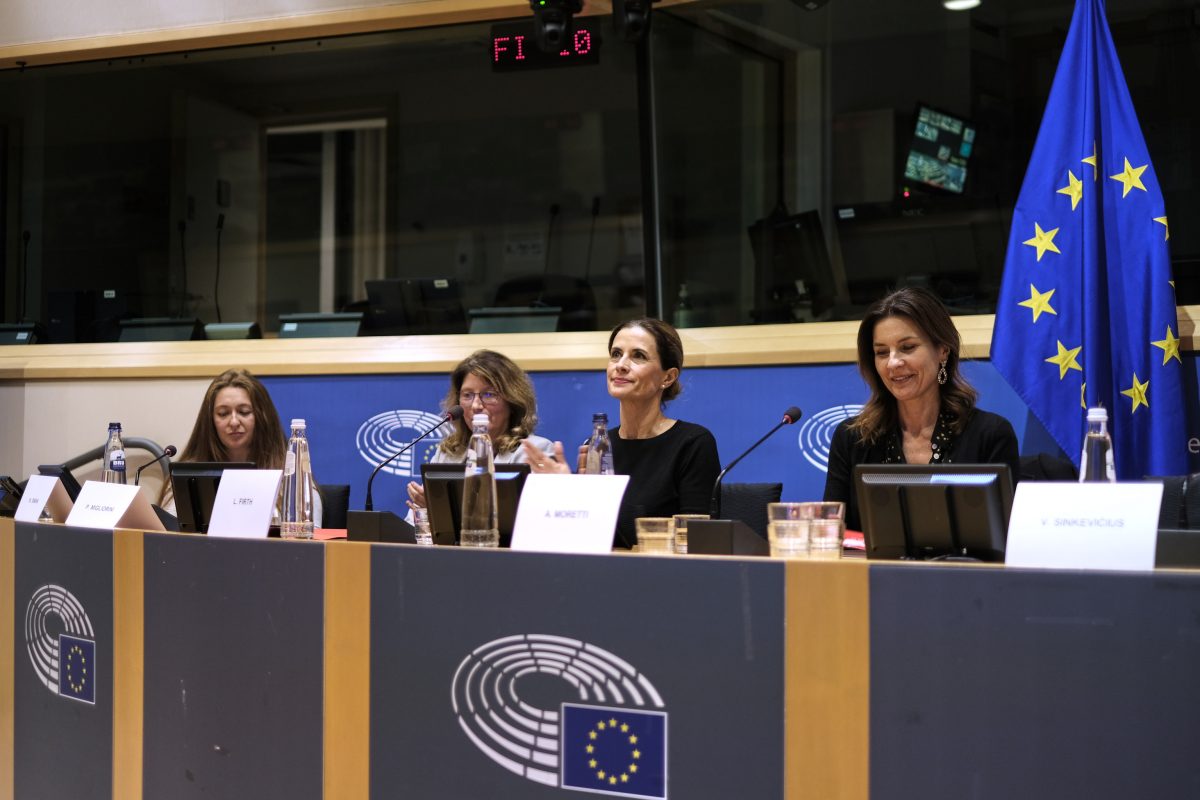
The main point made during EcoAge and MEP Alessandra Moretti’s joint event in the EU Parliament was to link the increased plastification in the fashion sector with social injustice upstream and downstream in the value-chain.
Livia Firth, founder of EcoAge and moderator of Fashionscapes for Transformation, has relentlessly these last months hammered in the point that these are two sides of the same problem at several high-profile events, namely the massive overproduction of apparel. No less for the second time in the EU Parliament.
The mix of speakers and participants was impressive, with representatives both old and young, from industry and research, as well as political heavy-weights, and voices both from the Global South and North. The voices heard during the event were diverse, but unison in their messaging: The massive overproduction, based on cheap synthetics, cannot continue. This has even sunk in with the policy-makers, who echoed the same concerns in well-prepared speeches, in line with Commissioner Virginijus Sinkevičius key-note, stating “fast fashion must become past fashion”.
SIFO’s Ingun Grimstad Klepp, who had been – together with Irene Maldini – a speaker at the last EcoAge event in the Parliament, had no official role in Fashionscapes; however, Livia Firth asked her intervention after the panel had presented and discussed multiple aspects related to social issues missing from the Textile Strategy, and what instruments could encourage deplastifying. The much-repeated idea that quality or durability are the silver-bullet that will instantly degrow the sector was, however, debunked by Klepp. But before getting to this, let us dive into the proceedings.
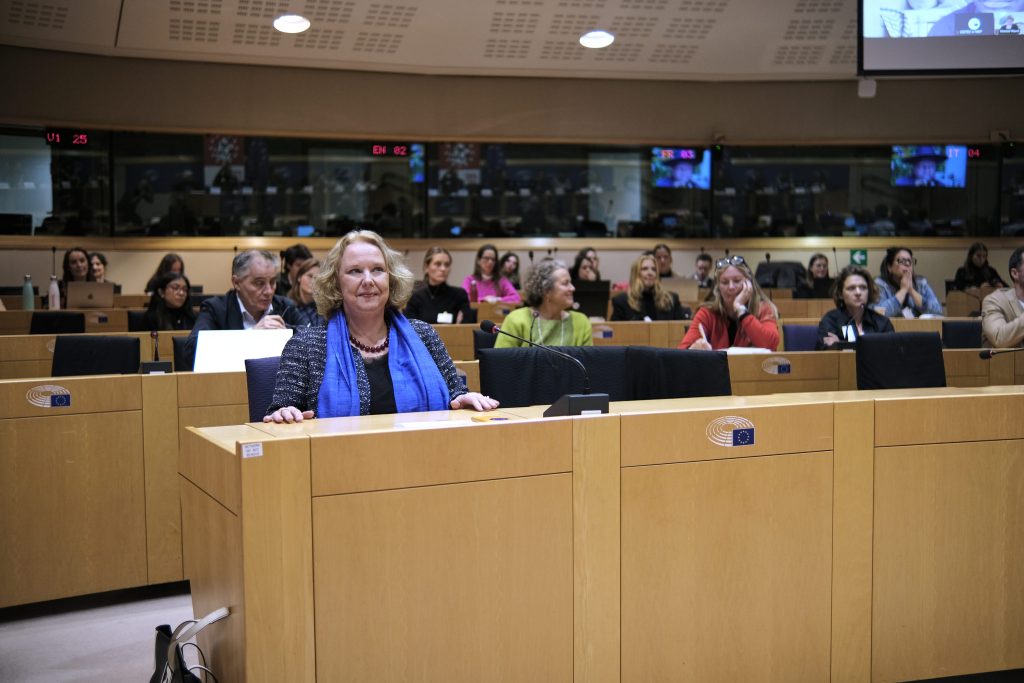
It was to be sure, an intense two-hour wake-up call, related to EU’s Textile strategy and Green Transition. MEP Alessandra Moretti, as hostess of the event and key note speaker Commissioner Virginijus Sinkevičius both high-lighted how ambitious these plans are, and had many good points in what they brought forward. Where disagreement surfaced, was around fiber-to-fiber recycling of synthetics – presented as a potential for a thriving new European industrial bonanza. As several pointed out, this will only increase the use of synthetics, continue to bring down prices and result in even more microplastics. As China produces 95% of today’s synthetics, why should they sit back and see Europe take over the market? That is not how market economics work. This is a blind alley, or as we say in Norwegian ‘believing in Santa Claus’, as several in the audience reiterated.
The main theme was divesting the fashion industry of its fossil fuel reliance, of course also in the fiber area, with waste colonialism and degradation of nature in the global south to satisfy the constant craving for newness in the global north, resulting in massive overproduction. This is of course based on fossil fuel input, but as just pointed at, recycling the same material is not the answer.
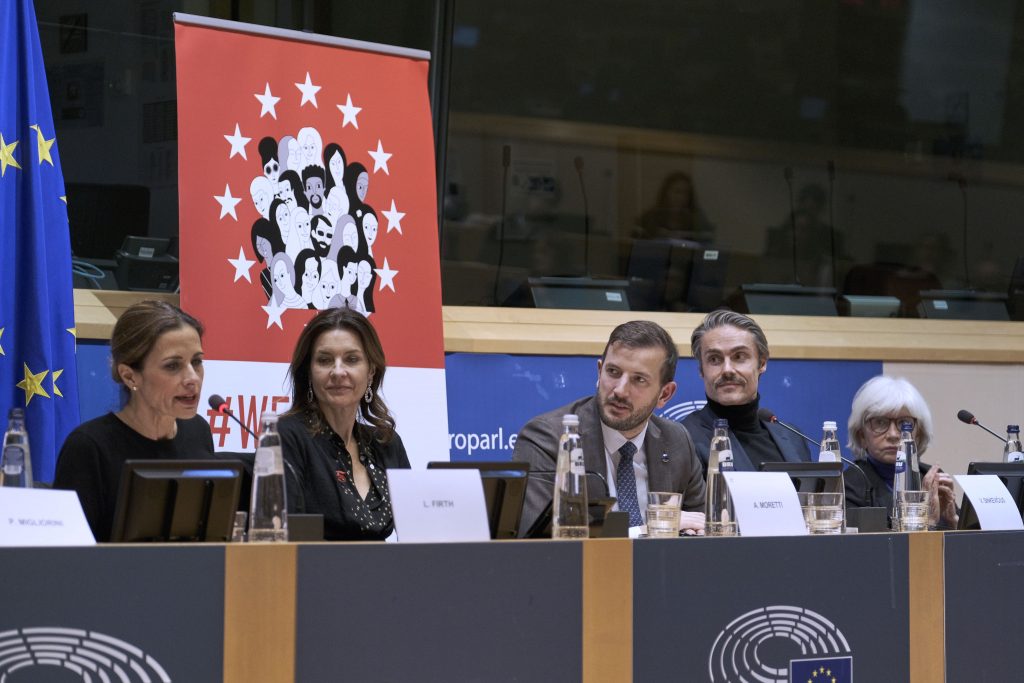
“This shows how the issues cannot be dealt with in isolation, but we need to look at them more holistically than is currently done in the 16 (or more) legislative pieces forthcoming from the EU,” was echoed by several participants after the meeting.
Laurence Tubiana, CEO of European Climate Foundation, who was the last speaker on the panel, claimed she was rather shocked that social issues are not better integrated into the Textile strategy where 80% of the work-force, we were told, is female and does not receive a living wage. However, these workers are also the ones facing the brunt of climate change, toxic chemicals in the soils and waterways, alongside being at the receiving end of our textile waste.
“Children in Ghana grow up not knowing what the ground looks like, as it covered with a permanent layer of textile waste,” Matteo Ward, Co-Founder of Wrad Living, told the audience. He was echoed by Yayra Aghofah, Founder of The Revival in Ghana who pointed out that they have to pay for this same waste that pollutes their environment and that will eventually end up as microplastics. This sad fate, several came back to.
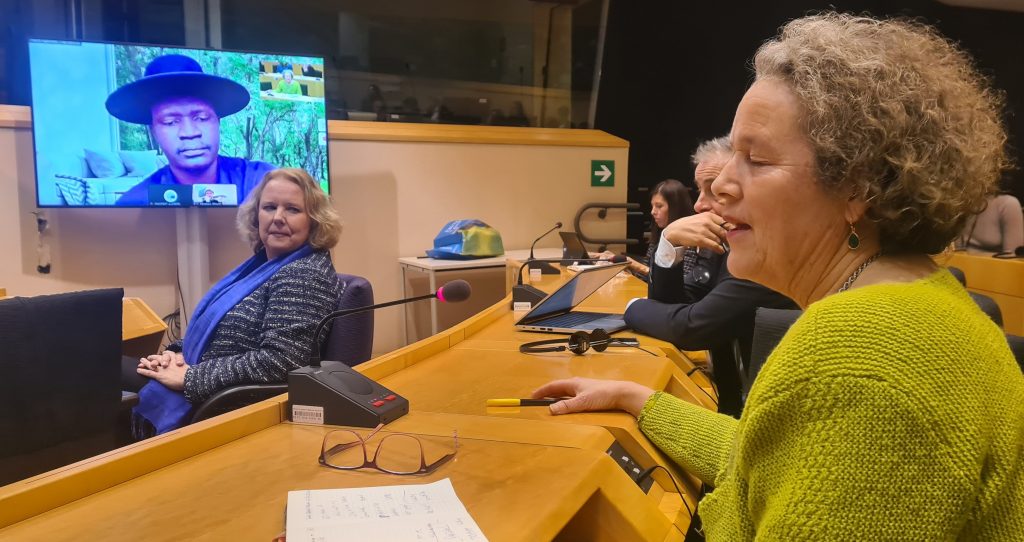
Black Friday was also a theme, as Yayra Aghofah suggested that they would be inundated with the results of this frenzy very soon, so action is needed now, not in 2026 or 2030. This, of course, underpins the need of immediately labelling season and year products go to market, so that Duration of Service can be captured when the items go into the diverse waste streams. Panelist Paola Migliorini from DG Environment claimed the EU “is helpless in regulating Black Friday”; ignoring that there are ways to legislate or counter-act such market forces with so obviously devastating outcomes. However, it was positive that overproduction had such a central place in the proceedings, both related to how they tie in with the plastification of fashion and with waste colonialism.
During the panel discussion, Livia Firth used the phrase “the Plastic Elephant in the Room” referring to the very back-bone of the fast fashion industry, synthetic fibers and their exponential growth, giving a nod to Consumption Research Norway’s recent report The Plastic Elephant: Overproduction and synthetic fibres in sustainable textile strategies.
Three from the audience were asked to intervene at the end, the first was Urska Trunk from Changing Markets Foundation, talking about the source for polyester for several fashion companies is still Russian oil.
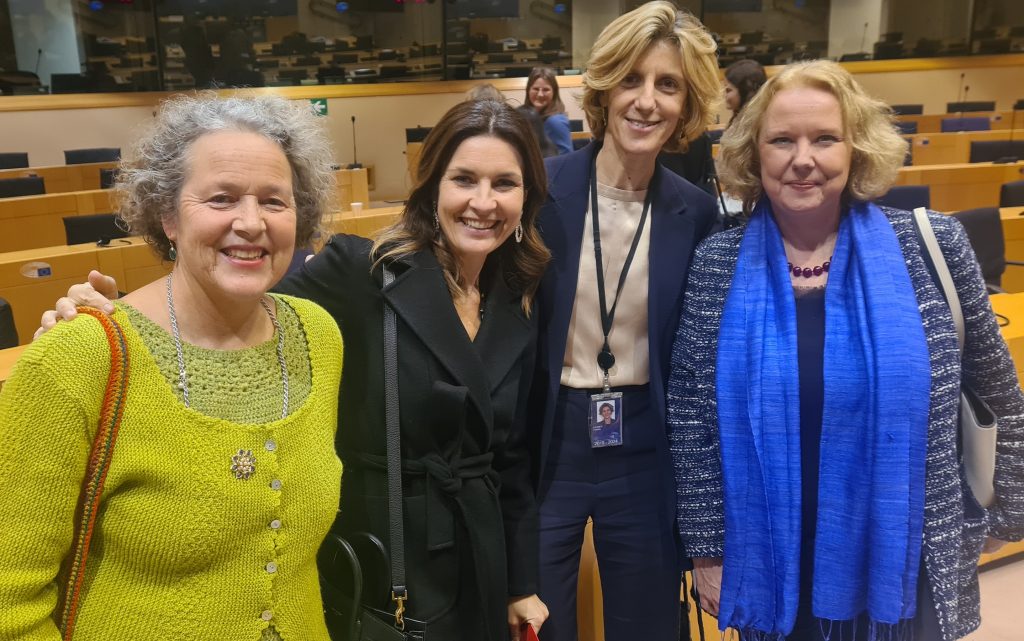
Then Ingun Klepp was asked to comment on ‘quality’, and she explained how the only information consumers receive is price, and this isn’t necessarily directly related to quality. She then went on to say that with the EU’s strategy focusing on durability, plastics will win. This in light of the reality that people do not discard textiles because they are ‘used up’, and this is the problem facing the Global South and receivers such as The Revival. Especially as there is more and more polyester, and will be more, and these materials, when exported to the Global South rather than incinerated, will eventually end up as microplastics.
This was immediately picked up by MEP Beatrice Covassi, who clearly was frustrated with the fact that the consumer has so little information about the products available and thus struggles to make good choices, and wanted to applaud professor Klepp’s input.
The last person, who was asked to comment, was Nicholas Rochat, Founder of the plastic-free sportsbrand Mover, who said that with more recycled polyester – even fiber to fiber – will only contribute to more microplastics. He described being in the mountains at 2000 meters, and still encountering microplastics, and no longer being able to eat fish, as they are contaminated.
But the main take-away was that the Commission seems to have a belief that all the 16 plus different policy instruments will ‘even everything out’, but the reality is that they are in danger of making things worse in tandem, actually promoting synthetics, if the focus on durability continues alongside eco-modulating fees based on weight.
As the participants filed out, one of them sidled over to Klepp and said, simply: “Norway, douze points”.